Switch to the mobile version of this page.
Vermont's Independent Voice
- News
- Arts+Culture
- Home+Design
- Food
- Cannabis
- Music
- On Screen
- Events
- Jobs
- Obituaries
- Classifieds
- Personals
Browse News
Departments
-
Education

Scott Official Pushes Back on Former State…
-
News

Burlington Budget Deficit Balloons to $13.1 Million
-
Education

Senate Committee Votes 3-2 to Recommend Saunders…
- Court Rejects Roxbury's Request to Block School Budget Vote Education 0
- Norwich University Names New President Education 0
- Media Note: Mitch Wertlieb Named Host of 'Vermont This Week' Health Care 0
Browse Arts + Culture
View All
local resources
Browse Food + Drink
View All
Browse Cannabis
View All
-
Culture

'Cannasations' Podcaster Kris Brown Aims to 'Humanize'…
-
True 802

A Burlington Cannabis Shop Plans to Host…
-
Business

Judge Tosses Burlington Cannabiz Owner's Lawsuit
-
Health + Fitness

Vermont's Cannabis Nurse Hotline Answers Health Questions…
-
Business

Waterbury Couple Buy Rare Vermont Cannabis License
Browse Music
View All
Browse On Screen
Browse Events
Browse Classifieds
Browse Personals
-

If you're looking for "I Spys," dating or LTRs, this is your scene.
View Profiles
Special Reports
Pubs+More
How Black Lives Matter Protesters Occupied a Park, Captivated a City — and Got Some of What They Wanted
Published September 23, 2020 at 10:00 a.m.
On a Thursday evening in early September, hundreds of white girls carrying cardboard signs milled around in Burlington's Battery Park, waiting to be told what to do. There were other kinds of people, too — an older man in Tevas, a guy with a long ponytail and a handmade cardboard sign that read: "It's time for all of us to arm ourselves because #facism and white supremacy won't simply be voted out." But the vast majority were females of the TikTok demographic, dressed in black, sporting some combination of Blundstones, ironic tube socks and leg hair.
It was the 11th consecutive night of protests against the Burlington Police Department, which had begun with a march on August 25 for Jacob Blake, a 29-year-old Black man who was shot in the back seven times by a police officer in Kenosha, Wis. Every night since, the organizers of the march, a racial justice group called the Black Perspective, had been camping out in Battery Park, across from the police station, to demand the firing of Burlington officers Jason Bellavance, Cory Campbell and Joseph Corrow, all of whom had been at the center of high-profile incidents of violence in recent years. On that Thursday morning, more than a dozen tents were scattered around the park; a Black Lives Matter flag rippled in the warm breeze.
In the first week and a half, the protests seemed to be reaching a crescendo; each nightly march from Battery Park to Burlington City Hall was bigger than the one before. On that evening, September 3, easily 1,000 people had shown up. One of the organizers, a skinny, bespectacled 22-year-old named Maday Maday, was attempting to herd them into formation by shouting into a megaphone. "Look at your signs! If it's black and white, move to the side!" he yelled over and over again. The black-and-white signs bore the names of the Burlington officers; red-and-white signs carried the names of victims of police violence across the country.
Meanwhile, two women in reflective vests walked up and down the line of marchers, instructing everyone not to talk to the press: "Do not speak to the media. Please tell anyone you see engaging with the media to stop."
Near the front of the formation, one of the organizers, a University of Vermont senior named Harmony Edosomwan, was in the process of telling off a WCAX-TV cameraman, who wore a pink polo shirt and had the kind of square-jawed, action-figure good looks that had probably lubricated every social situation in which he'd found himself up to that moment. A couple of Edosomwan's fellow organizers stood by, eyes widening in holy-shit glee as she ripped into him. "You are perpetuating white supremacy," she admonished him. "You are causing us harm by being here." The cameraman did his best to look untroubled as he folded up his tripod.
The protesters' antipathy toward the media has become the subplot of almost every story about the Battery Park demonstrations. That resistance isn't peripheral to the movement's goals, but a key part of achieving them: If the organizers refuse to deviate from their talking points, the media can only reiterate those talking points, multiplying their message. The spectacle of hundreds of marchers descending upon Church Street during the dinner hour, stopping traffic at every intersection between Battery Park and city hall, is catnip for any journalist; night after night, reporters show up and lurk around the action, cobbling together event-recap-style pieces with sound bites from speeches and rough guesses at attendance and bland recapitulations of the protesters' demands, punctuated by some variation on the line: "The protesters have repeatedly declined to speak to the press."
When, for a short time, the organizers of the Battery Park protests agreed to talk to me, I thought I was going to write about them — to tell, through their eyes, the story of Vermont's largest public manifestation of the national reckoning with racism, white supremacy and the systems designed to uphold the status quo. Instead, the story became about not getting the story, even as the story was happening in full public view, proclaiming a clear, singular message.
'In' Crowd
click to enlarge 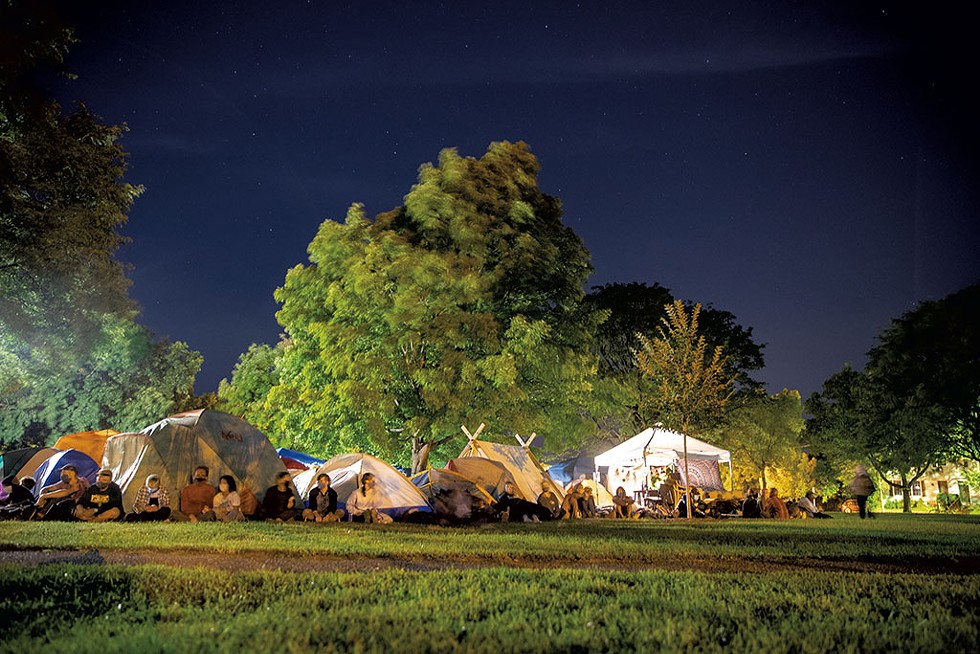

- James Buck
- Protesters gathering around the tents in anticipation of potential police presence
Battery Park happens to be about 100 yards from my house. Through my bedroom window, I could hear the protesters chanting deep into the night, and the dueling honks of solidarity and aggravation from passing cars. A few days after the encampment appeared, I walked over to the park and found Edosomwan, whom I recognized from the cover of a June issue of Seven Days, which featured a story about a 2,000-person march on the Burlington Police Department that she'd organized in honor of George Floyd, a Black man who was killed, in May, by Minneapolis police.
Edosomwan was sitting on the sidewalk near the Beansie's hot dog bus, holding a megaphone in her lap. I introduced myself as a journalist. "Actually, we don't talk to the press," she said. I asked why. "Because they twist our words; they misrepresent us." She told me that there would be press releases, though she wasn't exactly sure who would be sending them or how one might sign up to receive them.
If it weren't for Anthony Marques, that probably would have been my last reporting interaction with the organizers. Since late spring, Marques, a former semiprofessional basketball player turned videographer, had been filming Black Lives Matter rallies across Vermont and turning them into short documentaries. I had contacted him earlier in the summer to interview him, but we never connected. I knew he was one of the leaders of the Battery Park protest; after my exchange with Edosomwan, I called him.
At first, he repeated Edosomwan's line. But when I asked him how the media could do a better job of covering this particular moment if the people at the center of it weren't willing to speak to the media, he softened. "By asking good fucking questions like that," he said. He invited me to meet him in Battery Park the next day.
Marques, 30, was born in Baton Rouge, La., and adopted by white parents in Brownington, a small town in Orleans County. "Say you were walking around this park and stepped in the one pile of dog shit," he said as we sat on a bench looking out over Lake Champlain, a few dozen yards from the huddle of tents. "That's what it's like to end up in Brownington."
He told me that if he gave me his seal of approval, the other BIPOC leaders would get on board. Later that afternoon, he introduced me to the other organizers. "She's going to tell the right story," Marques assured them.
Organizing Principles
The right story about the encampment, according to 20-year-old Mohamed Abdi, one of the organizers I met through Marques, is that it's a pretty smooth enterprise. "For an unorganized thing, it's pretty organized. I myself am surprised by how organized this whole situation is," Abdi told me on September 8, day 15 of their occupation. Abdi had spent all but one night in the park since the protest began. While we talked, he sipped from a can of energy drink; in his right hand, he held a fistful of Mellowcreme Pumpkins.
In June, Abdi and Maday cofounded the Black Perspective, the racial justice collective that led the August 25 march for Jacob Blake, which eventually turned into the Battery Park encampment. Both Abdi and Maday graduated from Burlington High School; neither had been serious activists before this summer.
"If you asked me six months ago if I wanted to be an activist, I would have said, 'Eh, not really,'" Abdi said. "I was just a regular college student with a regular life. I wasn't very focused until now." This fall, he would have been a junior business major at Champlain College, but he took the semester off to concentrate on organizing. "People don't realize that this isn't fun," he said. "This is more than a full-time job. If you're here, you have to be here 100 percent. Something is always happening."
By that point, the encampment had already morphed into a sort of autonomous zone, led by a group of maybe a dozen BIPOC activists, most of whom are around Abdi's age. An invisible line of demarcation, which extends roughly from the round pavilion in the middle of the park to the entrance farthest from the police station, separates the protesters from the area occupied by the homeless.
"At first, our neighbors did not like us being here, in their living room," said Abdi. "Once we gave them their space, they started to see that we're trying to build a relationship with them and that we have resources that are beneficial to them. See, this whole thing is not just for protesters." He nodded in the direction of the awning-covered food station, where volunteers serve free hot meals and hand out bottled water and snacks throughout the day. "Literally, anybody walking by can just go right up there and get something to eat."
Medics staff the encampment 24 hours a day; Planned Parenthood occasionally drops by to distribute condoms and pregnancy tests. At one point, I noticed that an entrepreneurial Christian proselytizer had taken up residence among the protesters, peaceably hawking slim green New Testaments from his one-man tent.
"I feel like a huge portion of the community is here — maybe not physically here, but they're behind the scenes, supporting us in other ways, just dropping off food and supplies," said Abdi. "Every single morning, we have coffee. I've never woken up and not seen fresh coffee."
A solar panel, donated by a local hacker nonprofit, generates enough electricity to power a Wi-Fi hot spot; at various hours of the day, people post up at folding tables or sit in circles on the grass, reading and attending virtual classes on their laptops. The day I met Abdi was overcast, and the backup generator needed gas. A man in a yellow baseball hat and glasses walked up to Abdi and asked him for the debit card so he could buy fuel.
"That guy was a traveler, passing through Burlington," Abdi said after he had left. "He parked his car here and asked me if he could set up his tent, and I said 'Sure, why not.'" He's been camping in the park ever since, doing odd maintenance jobs. When I asked where the generator came from, Abdi replied tersely, "The generator belongs to the Black Perspective." The group, which sustains itself through donations, displays its Venmo and Cash App information on signs throughout the encampment and on its social media platforms.
Abdi takes a slightly less hostile view of the press than some of the other organizers. In July, he and Zanevia Wilcox, another member of the Black Perspective and a leader of the Battery Park protests, appeared on an NBC5 segment about a pro-law-enforcement rally at the Statehouse in Montpelier, where the Black Perspective had staged a counter-event. The station misspelled both of their names, which Abdi cited as a prime example of the media's bad faith. "It's complete disrespect. They lost our trust because of stuff like that. And on top of that, when we tell them a story, they make it more..." — he paused — "interesting. They add things; they take away things; they twist our words. They just make us look like something that we're not. And that's just something we cannot have around."
And then he said, "I personally think any coverage is good coverage, even negative coverage, because you need the public to know something about what's going on. You can't have them create their own idea of what's going on here, and that's why I agreed to this" — meaning this conversation with me — "because we should definitely have somebody telling something about this, somebody that actually lives here. Obviously, not everybody feels that way, but I personally could care less."
It is entirely possible that Abdi sees no contradiction here. But as a journalist whose job is to find the story, to arrange other people's words in a way that reveals some larger meaning, I've chosen to point out the contradiction — to make things, as Abdi put it, more "interesting."
Bad Cops?
click to enlarge 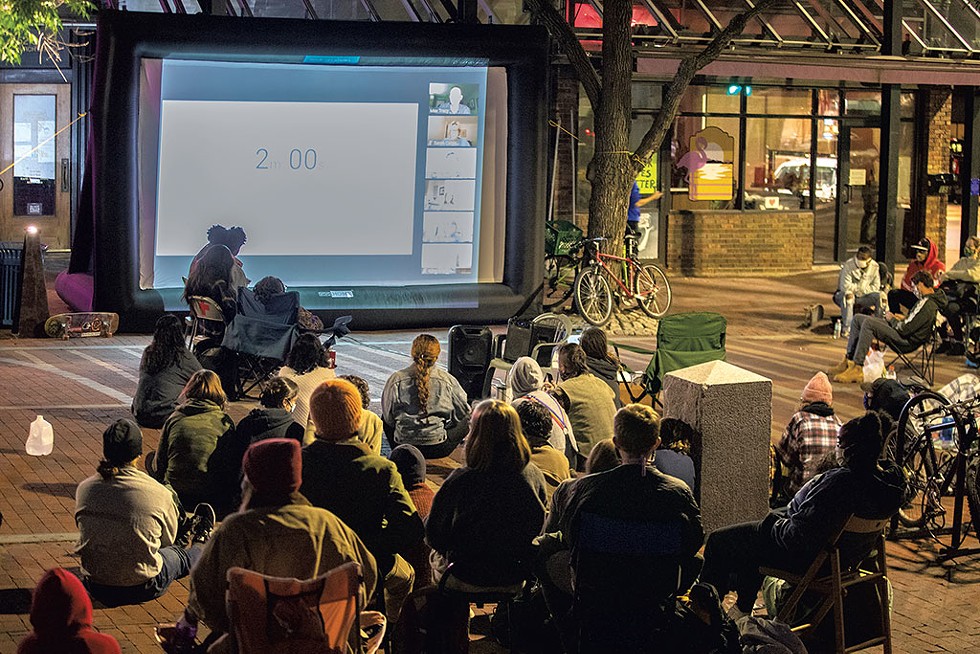

- James Buck
- Demonstrators viewing a Zoom city council meeting during a sit-in in front of city hall
The encampment in Battery Park is the latest push in a yearslong effort to hold Burlington police accountable to the public, which has been mostly focused on three high-profile incidents involving Corrow, Bellavance and Campbell. All three officers have been named in pending civil lawsuits against the city; last year, Black Lives Matter of Greater Burlington created a change.org petition seeking their termination, which has received more than 84,000 signatures.
In March 2019, Campbell punched a white man named Douglas Kilburn outside the University of Vermont Medical Center after the two got into a verbal altercation. Several days later, Kilburn died. The state medical examiner ruled his death a homicide; state Attorney General T.J. Donovan concluded that Campbell's use of force was justified, since Kilburn had punched him first, and reprimanded him only for swearing.
The previous September, Bellavance, a sergeant, responded to a call about a fight at a Main Street bar in the early hours of a Saturday morning. Seconds after he arrived, and without announcing himself, Bellavance shoved 24-year-old Jérémie Meli, a Black Congolese man, into a wall. Meli struck his head and collapsed onto the sidewalk. Meli's brother, Albin, placed his hand on the shoulder of Campbell, who had arrived for backup, and asked him to stop; Campbell and Bellavance tackled Albin to the ground. Bellavance was suspended without pay for an undisclosed number of days and placed on administrative duty.
The night before the incident with the Meli brothers, Officer Corrow approached what appeared to be a heated argument outside another bar on Main Street. Seconds later, he walked up to 34-year-old Mabior Jok, a Black Sudanese immigrant, and slammed him to the ground. According to Corrow's affidavit, Jok lost consciousness. An internal investigation cleared Corrow of wrongdoing on the grounds that he had "intervened in a fight," even though witnesses said Jok never threw a punch.
In recent months, the topic of police reform in Vermont has taken on new urgency, fueled by fury over more incidents of police violence against Black people elsewhere in the country. In late June, the Burlington City Council approved a 30 percent reduction in the city's police force amid growing pressure from activists, who have called in to Zoom meetings by the hundreds to voice support for the proposals of the state's Black leaders and racial justice groups. This summer, the Black Perspective held several rallies in Battery Park; in Vergennes and Bethel and Craftsbury, people have turned out by the hundreds to hold Black Lives Matter signs on their town greens.
The Battery Park protesters reissued the call to fire Bellavance, Campbell and Corrow; they have also demanded the public release of all police body camera footage and the reallocation of the Burlington Police Department's funding to support housing and health care reform. On Monday, after nearly a month of demonstrations, their pressure yielded a partial victory: The Burlington City Council approved a severance agreement with Bellavance for $300,000, or three years' pay at his salary.
Burlington Mayor Miro Weinberger supported the deal with Bellavance, who had a supervisory role and should, in his view, be held to a higher standard of conduct. But Weinberger indicated that he wouldn't pursue buyouts for Campbell or Corrow because their uses of force were deemed consistent with departmental policy. In a public statement, he warned that it would set "an unmanageable precedent" if employment decisions were "subject to retroactive reopening by passions of public opinion."
Weinberger agreed, however, that there are intractable problems with the existing disciplinary process; in Burlington, only the chief of police has the power to dismiss officers. The city is considering an amendment to its charter that would give the mayor and the city council greater authority in matters of police discipline.
"I think there's no doubt that what is on the books has created this moment of extraordinary conflict," Weinberger said in an interview. "I think people are deeply uncomfortable with the idea of the police policing themselves, and I think there needs to be a change to that system."
That system includes the Burlington Police Officers' Association, whose lawyer, Richard Cassidy, issued a public statement in early September defending the process by which Corrow, Bellavance and Campbell had been disciplined. "The rule of law," he noted ominously in his press release, "has been under attack by some forces in America for some time." Because of his position as a sergeant, Bellavance is the only one of the three officers who doesn't belong to the police union.
On Tenterhooks
The encampment in Battery Park is mere feet away from the Burlington police headquarters on North Avenue. The dynamic between the two entities has generally been one of mutual avoidance, but on the night of September 7, that vibe seemed like it was about to change.
One of the protesters with a line of communication to the department had heard that the police could begin issuing tickets for illegally camping in the park, starting September 8, and the organizers wanted to be prepared at the stroke of midnight. The crowd in the park that night was smaller than usual, and everyone seemed a little on edge, with the possible exception of the enterprising Christian, who had distributed an entire box of pocket Bibles that day.
"The mayor is really cracking down on legal action," Wilcox told the assembled group, which had just marched back to the park from city hall. "They're planning on coming in here tomorrow and giving citations. If there was ever a time for you to be present, it's now. We need bodies. We need more than allyship — we need people to show up."
The plan, she explained, was to move all the tents into a single area, farther away from the Beansie's bus and the entrance to the police station. She urged everyone who planned to stay the night to attend a de-escalation training. If the police entered the encampment, she said, the protesters should all link arms; if asked to name the owner of any tent, the collective response would be, "That's our tent."
"If you are privileged enough — and I can't stress this enough — to handle a citation, be mindful that many of us here are not," Wilcox continued. "Remember, now is not the time to be the hero of the narrative. You are here for Black lives and Black liberation."
The group adjourned for dinner. People's Kitchen, an anarchist-adjacent food pop-up, was serving free brisket and vegetable curry. A few people made cardboard signs that read "Link Arms" and "Don't Tell Cops Anything Not On Your I.D." The freelance evangelical laid out more pocket New Testaments; James Brown pulsed through the night from a pair of loudspeakers. Someone announced through a megaphone: "I need all the cis men to come to Beansie's!"
Around 11:45 p.m., everyone who was spending the night dragged the tents into a cluster and sat in a row along the perimeter, like sentries guarding a fortress. Midnight came and went, and nobody showed up to ticket them. Three weeks later, the police still haven't made an appearance.
Scene and Heard
Compared to the chaotic scenes that have played out in other cities, Burlington's month of protest has felt comparatively choreographed, and city officials have treated the Battery Park encampment with something like benign neglect. Mayor Weinberger has issued desultory warnings of citations for camping in the park and other ordinance violations; meanwhile, the protesters have claimed the streets almost every night.
Volunteers in reflective vests block traffic at the intersections along the march route from Battery Park to city hall, where the organizers take turns leading chants through a megaphone. "Oink! Oink! That's the sound of the police!" and "Take it to the streets and fuck the police! No justice, no peace!" are two especially popular ones. At a rally one night, Suzie McCoy, a 60-year-old white woman, confided that, at first, she was uncomfortable with the profanity in some of the chants. "But now, I realize that's my white fragility speaking," she told me. "It's tone policing."
The protests have occasionally been met with annoyance and hostility from passersby, typically in the form of outbursts of "All lives matter!" and the testosterone-fueled revving of trucks at blocked traffic lights. During a march one evening, I watched someone drive a green Ford pickup onto the sidewalk at the intersection of North Avenue and North Street, where marchers were crossing, and nearly collide with a car in the oncoming lane. Another night, I heard a man yell a racist slur out the window as he drove by the protesters in front of the Burlington Police Department. Several people told me that happened pretty regularly.
The most dramatic of these incidents happened in the first few days of the encampment, when a man openly carrying an assault rifle across his chest began loitering on the sidewalk opposite Battery Park. He stood there for hours over the course of several days; someone who happened to be standing near him during one of his creepy vigils said that he had pointed at one of the protesters' signs, which read "Revolution Now," and said, "That's why I'm here, too."
For obvious ideological reasons, the protesters didn't immediately go to the police, who informed other concerned callers that Vermont is an open-carry state and that the man with a gun also had the constitutional right to protest. Three days later, when Burlington police finally questioned the armed man, a 26-year-old Winooski resident named Jordan Atwood, they discovered that his right to carry had been suspended because of a previous criminal charge, and they arrested him for violating his terms of release.
On a recent Sunday afternoon, a small delegation of pro-law-enforcement demonstrators, all of whom were white, showed up in front of the police station. A few held up signs that read "Thank you BPD!"; one man carried a banner displaying the words "Take Back Our City."
The Battery Park protesters flanked them, chanting loudly. One of the Battery Park organizers, Cole Gilder, shared a video of the encounter on Instagram. "How's life in Loserville?" he asked the man with the "Take Back Our City Sign." The man didn't respond. At one point, Gilder stood next to a woman holding a Thin Blue Line flag, a symbol of support for police that, in the right-wing context of the Blue Lives Matter movement, has become associated with white nationalist ideology. The woman placed her hand in front of Gilder's camera.
"Don't you dare touch me!" Gilder said. He moved away slowly. "Get your crusty hands out of my face."
A few yards away, at the end of Front Street, Jenni Johnson, a jazz vocalist who has lived in the neighborhood for 25 years, watched in frustration. "This is nothing but trouble," said Johnson, who is Black. "To be disrespectful to another group that's protesting silently? That just elevates the level of ignorance. The city might cut a deal with the cops — so what? That doesn't make a real difference in this country. That's not where the power is." She shook her head. "Go to city council, with a document, with a proposal, and take it to Montpelier. Go to where the power is."
Leadership Change
About a week and a half into my reporting, Marques announced, via Instagram, that he was leaving the Battery Park protest to work on a project with JAG Productions, a Black theater company in White River Junction. In the post, he also wrote that he was "focused on the truth about what's really going on at these protests that are invisible to the eye" and that "the sound bites are real and going to make people very VERY uncomfortable and I'm not just talking about 'White Allies' never judge a book by its cover because words of hypocrisy fill up the streets."
This seemed interesting, so I asked him if we could meet. He told me he'd prefer to go somewhere other than the encampment, which is how I ended up drinking Coronas with him on a sidewalk bench on Battery Street, a few blocks south of the park.
Marques decided to leave Battery Park, he said, because of his frustration with the leadership. "You take individuals that have never had leadership roles, and then they have this following — or people that are just listening, but are just showing up for the bigger purpose. They mix that up with, 'They're showing up for me,'" he said. "And that goes to their heads."
As we talked, a pair of white teenagers appeared. They seemed to want something from Marques. "You're not supposed to be drinking on the job!" one of them said to him. He was short, with untied sneakers. "No job," Marques said flatly, taking a swig of his Corona. "Guys, we're speaking, like, business, unfortunately, right now, so I'm gonna have to ask you to—" he made a gentle shooing motion. "Are you gonna be out here for a little bit?"
Untied sneakers said they'd be hanging out at Simon's for a while. "Let me give you guys some money to get a drink," said Marques, taking a wad of crumpled fives and singles from his wallet. "Sorry, I know I told you to come down here."
As they left to go to Simon's, another white person showed up, a young woman with short curly hair who introduced herself as Maggie. She was delivering a piece of art she had made for Marques, a digital illustration of a photo she'd taken of him holding a Black Lives Matter flag during a rally in Battery Park. Marques invited her to stay and have a beer, so she did.
"Those two," Marques said, referring to the teenagers, "were up at the police station a few nights ago, screaming their heads off." According to Marques, they hadn't liked the fact that the protesters had taped a sign to the police station, which they saw as vandalism of government property, and they decided to make a scene about it around 1:30 a.m. Marques went over and talked to them for nearly two hours about why he and so many others were protesting, why they wanted Corrow, Campbell and Bellavance fired; by 3:30 a.m., he said, he had convinced them that the cops should lose their jobs. The next day, they showed up and marched. "If you want to talk about 'the real work,' that's what it's all about," he said.
In Marques' view, the female leadership didn't want to do that kind of work or to engage with anyone whose views didn't align with theirs. The whole movement, he said, had become "a triggerfest," a zero-sum power game. "A lot of it has to do with never having a voice. And when you get to have a voice, you take complete advantage of that, and you feel like if anyone else is speaking, they're speaking over you," he told me. "That's not what I'm here for."
I asked if the female leadership had been responsible for the decision to freeze out the press. "No, that was all me," he said. "Would I have shut out the media this long? Probably not, but the best way I can describe it is this: The protest is like holding somebody hostage. If anyone starts talking, it's not a hostage situation anymore."
I asked why, then, they had made an exception for me.
"First of all, because you approached me. If you're not going to start with trust, you have to be willing to start somewhere, and nobody else would have started somewhere."
According to Marques, some of the Black female leaders had tried to freeze out some of the Black male leaders, including him, and distrust among the organizers was so rampant that the whole thing would implode sooner rather than later. "There's gonna be a big fat L ticket here. We're gonna lose this," he said. He told me he didn't think the encampment would last two more weeks. I suggested that, if nothing else, the massive turnout each night for the marches to city hall, the rush of commanding a crowd, might be enough to keep the organizers going for a while, even if the city refused to meet their demands.
"See, what's happening is a cult," he said. "They think it's OK to exploit white people, is what's happening. It's an exploitation of white people that show up on Tuesdays and Thursdays, wearing black, because those are the big days to show up and pretend that you're not racist. It's just a shit show. It's sickening."
After at least an hour, Maggie said she had to go home. She'd barely spoken the entire time; as she left, she thanked Marques for allowing her to be there.
Access Denied
During a September 8 meeting, the Burlington City Council voted to allow several of the protest organizers into an executive session to discuss the city's legal options for firing the three officers. Some members of the council pushed back, arguing that there were no statutory grounds for allowing certain members of the public to attend closed-door sessions. Others, including Councilor Zoraya Hightower (P-Ward 1), argued that those very grounds were perpetuating a racist status quo. "We don't live in a fair society," she said during the meeting. "Just maintaining the status quo, rather than doing what we're actually calling 'special treatment,' is the very way that racial equity, able equity, gender equity has been postponed over and over again."
Seven Days filed a complaint against the council for the move; the following week, the council voted that it had, in fact, violated open meeting law. In anticipation of this discussion and another public comment session, throngs of protesters gathered in front of city hall, with snacks and folding chairs and blankets, to watch a screening of the meeting on an inflatable projector. When I arrived to observe, a white guy with thick eyebrows, whom I'd seen around the encampment, walked up to me. He knew I was a journalist. "Do you know what BIPOC stands for?" It was a test, not a real question.
"Black, Indigenous or people of color," I replied, fully aware that getting it right made no difference. I was already untrustworthy.
Since my conversation on the sidewalk bench with Marques, I'd grown skeptical of his assessment of "the female leadership," the nonchalance with which he'd dissed them, and I wanted to ask the women organizers about his departure. At the same time, I dreaded bringing it up; the whole thing felt like a sideshow, beside the point, and yet, it was now part of the story. A few days before the sit-in, I had texted Wilcox and asked if she'd be willing to speak with me. "As many of us organizers have communicated before, we are not speaking to press/media throughout the duration of this protest," she wrote back. I asked if there was some reason for the change of heart about my access. She gave none.
While the council was attending to business about a crane permit, I found Maday and asked if I could talk to him about Marques. We had spoken once, several weeks earlier, but Maday said he didn't remember me.
"Wait," he said warily, "so are you writing a story about Anthony, or are you writing about the movement?" I explained that I was trying to write about the movement, but Marques would probably be part of the story, since he was the reason I'd had any access to it in the first place. Maday didn't seem too thrilled with the idea that one story could be about two things.
"Are you sure we talked? Because I don't remember you at all," he said. I took out my phone to show him my notes from our previous conversation; possibly, he'd forgotten. But I had chosen the exact wrong moment to introduce a device. "Are you recording?" he demanded. I wasn't, and I told him so. "Then let me see your phone," he said. I told him no, and then he informed me that any trust he might have had in me had been broken. He left to tell his fellow organizers what he thought I was up to.
Edosomwan, Wilcox and a third female organizer followed me as I walked away from the sit-in. At the bottom of Church Street, they confronted me about recording Maday. Edosomwan said I should never come back to a protest.
Her companion shook her head, looking at me but addressing Edosomwan. "She's probably an All Lives Matter bitch."
Still, Waiting
On Tuesday morning, hours after the city announced the deal with Bellavance, the Battery Park organizers issued a statement on social media, their first message directed specifically at the press since the protests began. "We deserve leaders who are willing to go forward in unprecedented ways to set new standards that will prevent acts of police brutality in the future, and who will create opportunities for BIPOC and other traditionally marginalized groups to thrive," the statement read. "The removal of one violent officer is an important first step, but it is not nearly enough."
That afternoon, day 30 of the encampment, was sunny and mild. Overnight, the leaves of the maple tree near the center of the park seemed to have turned flaming scarlet and orange. A few of the protesters hung around in folding chairs near the food tent; an older woman wearing a red, white and blue sweater shouted something at them as she walked by. In a few hours, hundreds of protesters would shut down Main Street with a sit-in at the Black Lives Matter mural, but for the moment, things were mostly still, save for one squirrel darting across a pile of cardboard protest signs, holding an empty Cheetos bag in its mouth.
The original print version of this article was headlined "Battery Power"
Got something to say?
Send a letter to the editor
and we'll publish your feedback in print!
About The Author

Chelsea Edgar
Bio:
Chelsea Edgar is a staff writer for Seven Days, and has written for BuzzFeed and Philadelphia magazine.
Chelsea Edgar is a staff writer for Seven Days, and has written for BuzzFeed and Philadelphia magazine.
More By This Author
Latest in Politics
Speaking of...
-

Lawsuit Accuses Burlington Police of Using Excessive Force on Black Teen With Disabilities
Jan 31, 2024 -

Three People Shot Near UVM Campus in Burlington, Police Say
Nov 25, 2023 -

Q&A: Meet the Family Running the Last Dairy Farm in Strafford
Jun 7, 2023 -

Video: Meet Earl & Jackson Ransom and Amy Huyffer of Strafford Organic Creamery at Rockbottom Farm
Jun 1, 2023 -

Gun Fired During Late-Night Altercation in City Hall Park
May 11, 2023 - More »


























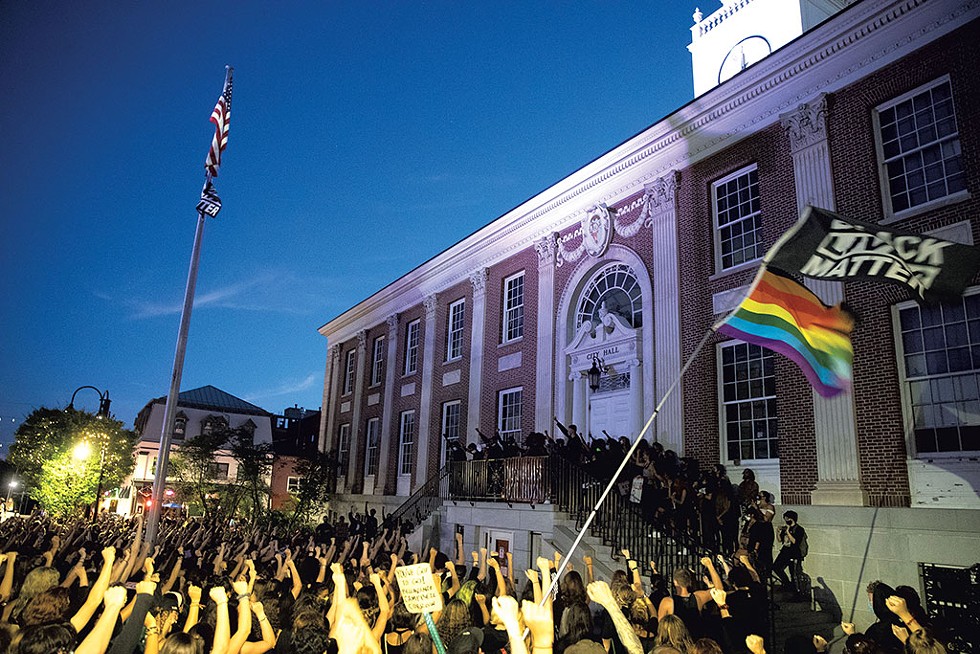
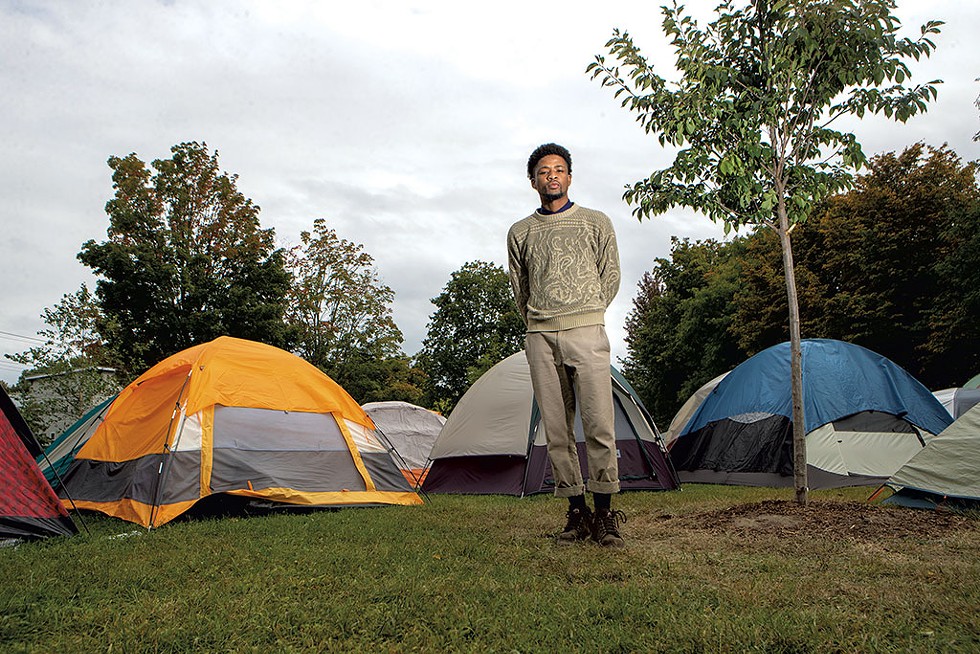
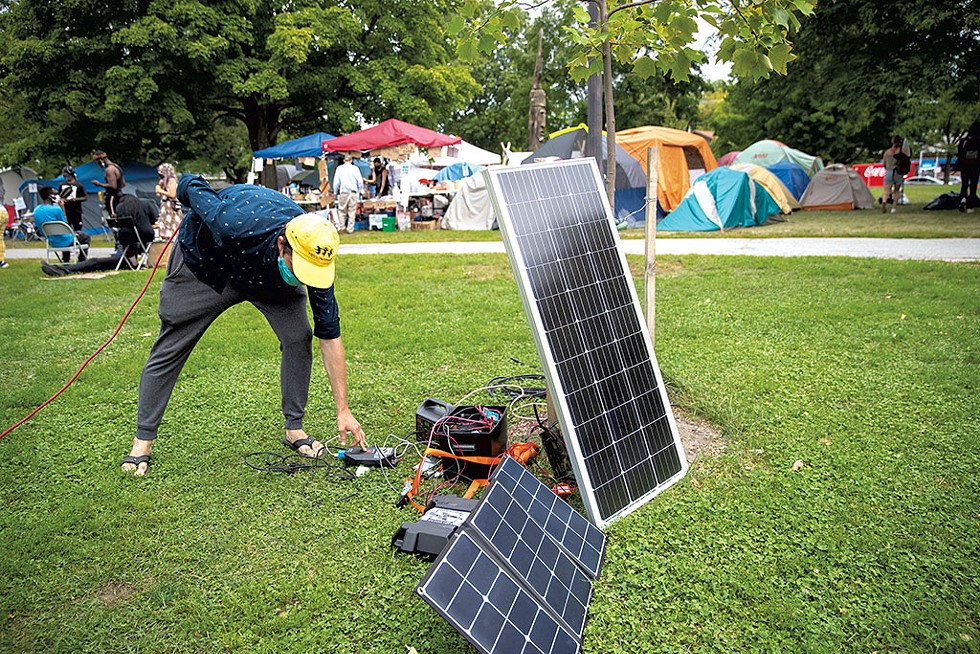
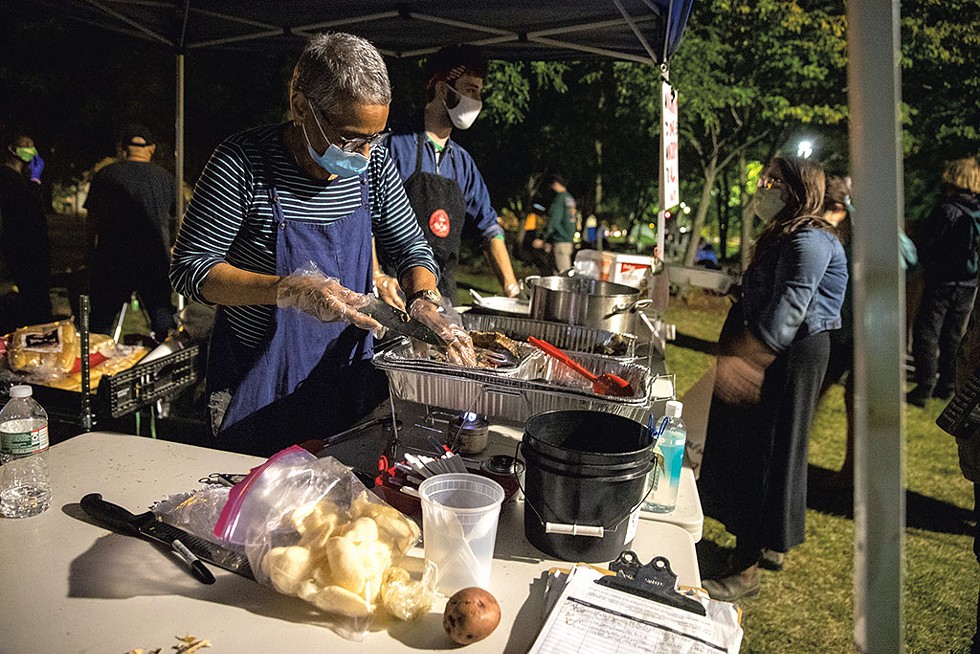
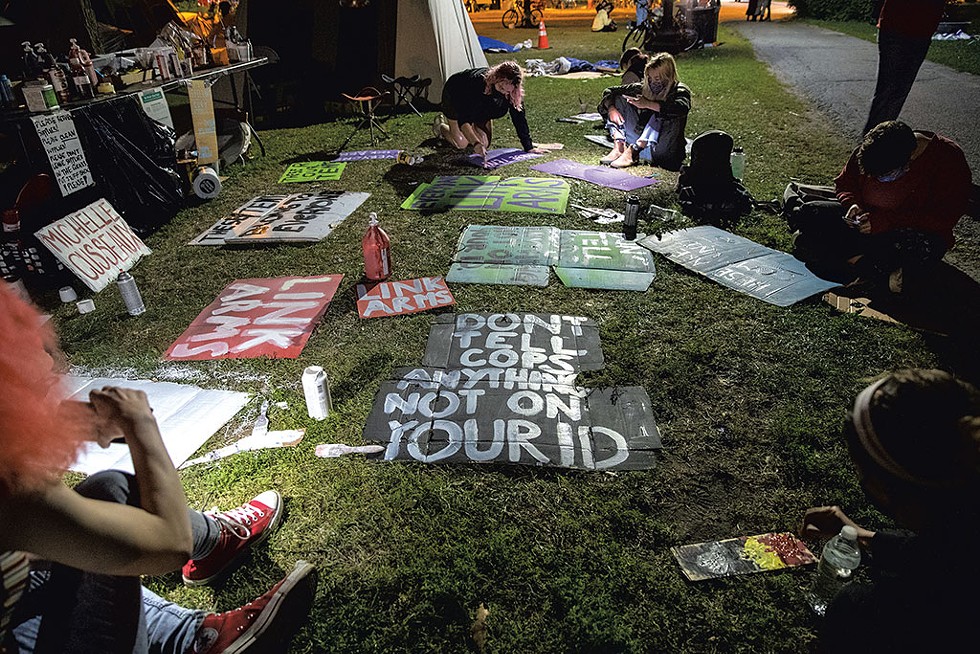
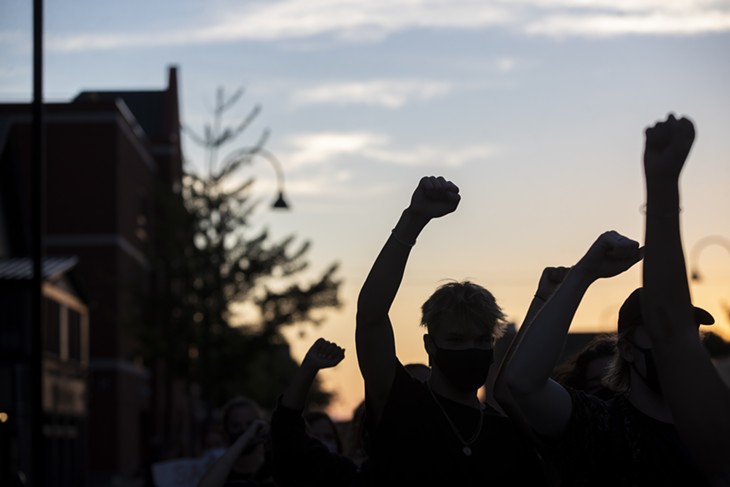
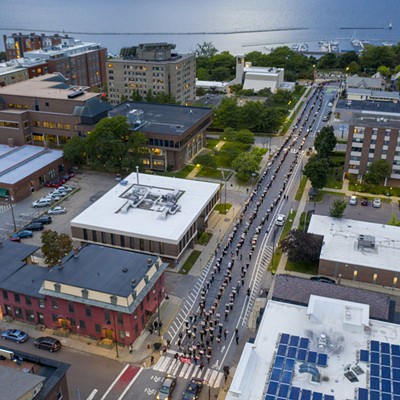
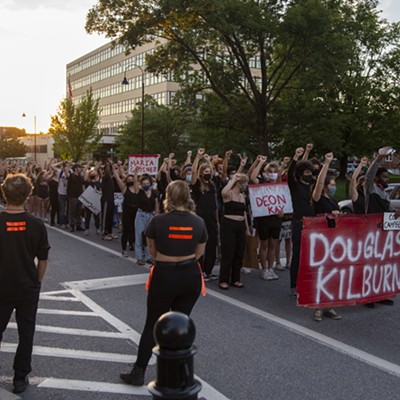
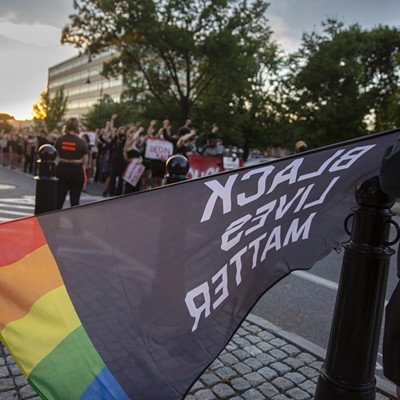
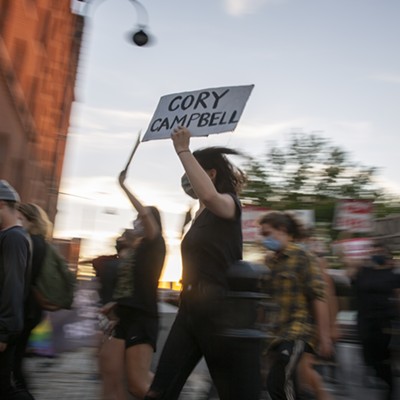
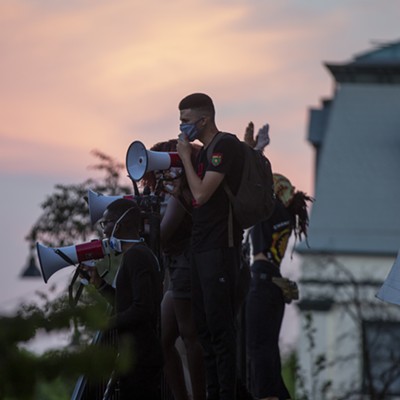
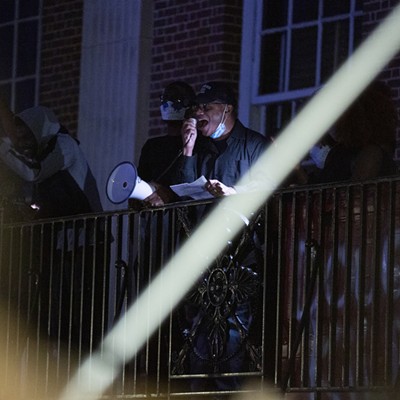
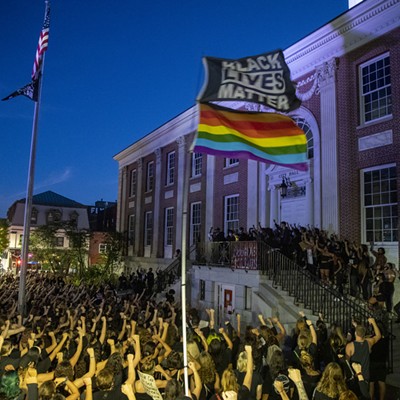
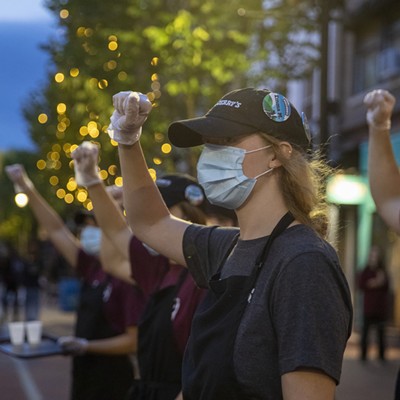
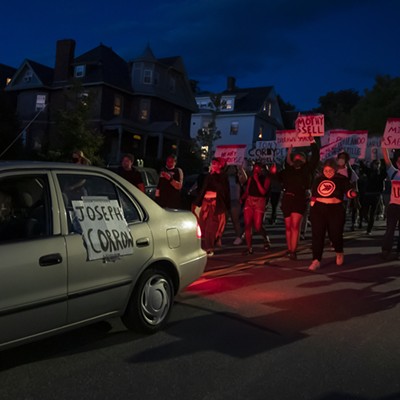
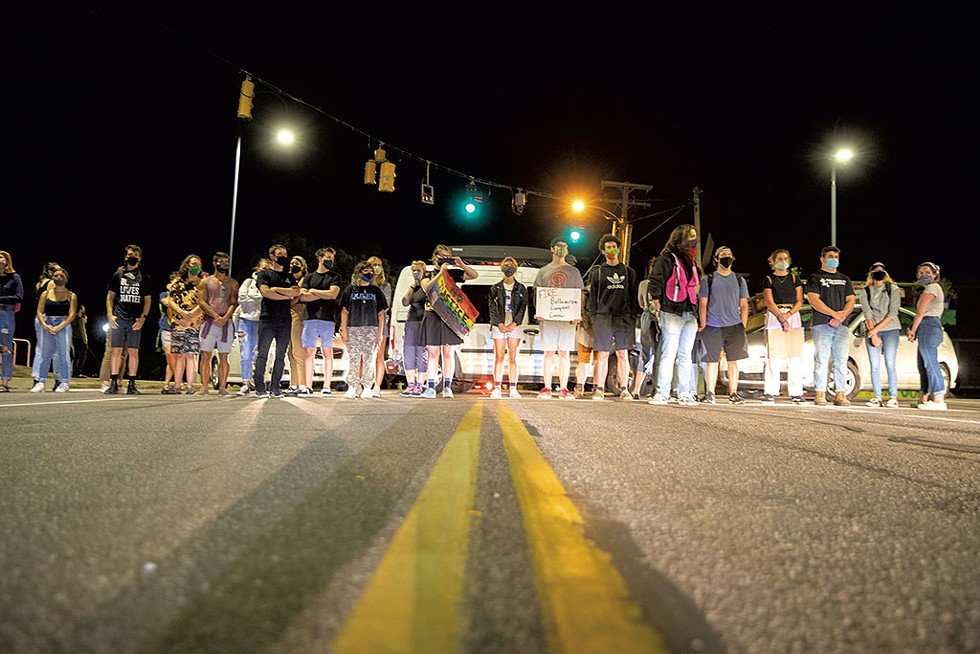
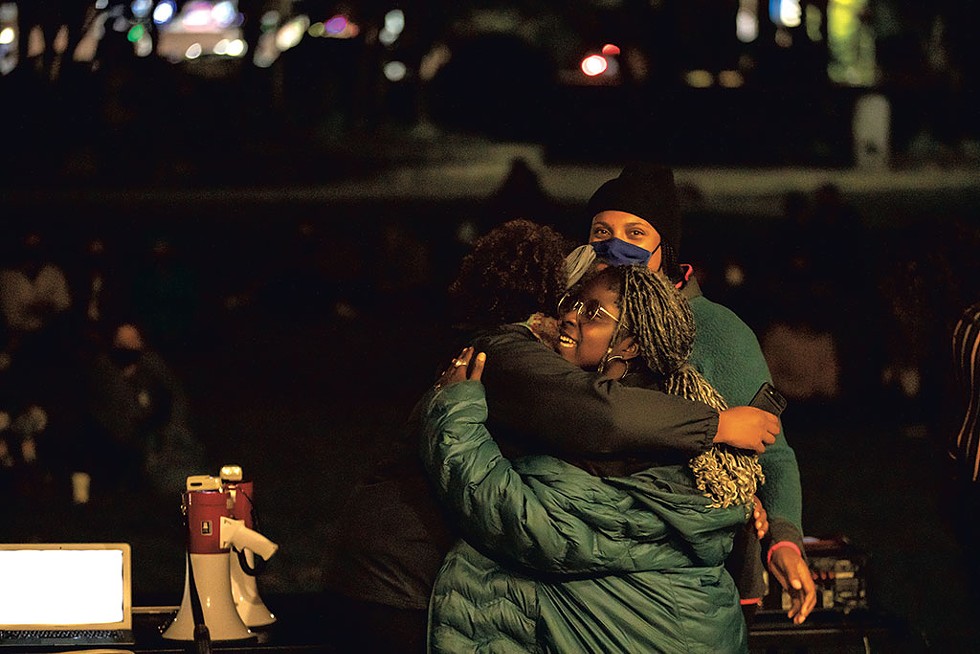






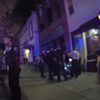

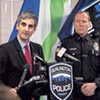
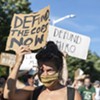
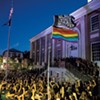

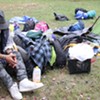
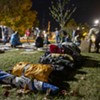
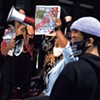
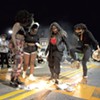
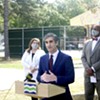
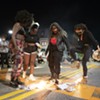

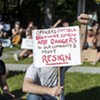
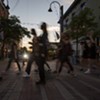

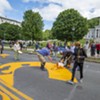
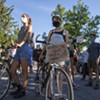
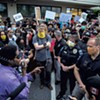
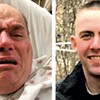

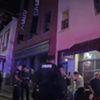


find, follow, fan us: